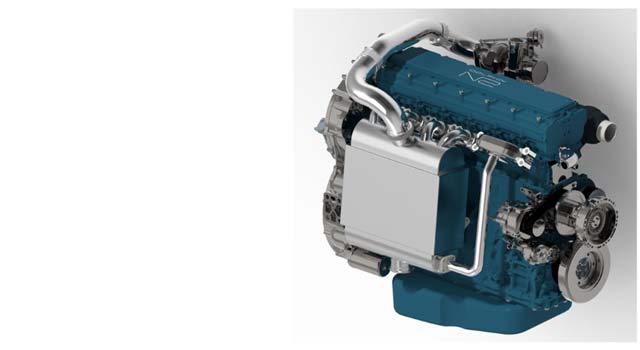Consultancy BMT, Dolphin N2, Brighton University and Hiflux have announced that the HydroMAR-E hydrogen mono-fuel (MF) engine, a version of the Recuperated Split Cycle Engine, is part of a major industrial cooperation project bringing homegrown, pre-commercial maritime technologies to market on par with elevated elimination levels of CO2.
The HydroMAR-E project is part of the Clean Maritime Demonstration Competition Round 2 (CMDC2) which was launched in May 2022, funded by the UK Department for Transport and delivered in partnership with Innovate UK. As part of CMDC2, the Department allocated over £14m to 31 projects supported by 121 organisations from across the UK to deliver feasibility studies and collaborative R&D projects in clean maritime solutions.
CMDC2 is part of the UK Shipping Office for Reducing Emission’s (UK SHORE) multi-year CMDC programme. In March 2022, the Department announced the biggest government investment ever in the UK commercial maritime sector, allocating £206m to UK SHORE, a new division within the Department for Transport focused on decarbonising the maritime sector.
Jake Rigby, Research and Development Lead, BMT said: “We are delighted to be a part of this innovative project supporting the project lead, Dolphin N2 Limited and other Industry/Academic Partners. The UK is one of the global leaders in clean shipping, and, in an industry that is strongly focused on sustainability and zero emissions, it makes sense that the supply chain is also as decarbonised as practically possible, with retrofit and new-build power generating solutions being considered for maritime applications. We look forward to moving this project forward, using the best in innovative green technology, complex engineering, and a partnership mindset to contribute to a more diversified and resilient energy economy. We are pleased to be working with our partners Dolphin N2, Hiflux and Brighton University on another complex design and engineering project with sustainability at its core. Strong collaboration between industry experts will be critical to the success of the UK’s maritime energy transition. We are also grateful to the Department for Transport for recognising the potential of this technical project in its Clean Maritime Demonstration Competition Round 2.”
This innovative thermal engine can be used in a range of heavy-duty applications. It claims very high efficiency (competitive with a PEM fuel cell), very low emissions (SULEV with aftertreatment), and ease of transition (existing ICE manufacture and installation requirements; moderate capital cost increase). Unlike a standard ICE, the RSCE has demonstrated ability to use Diesel, Methane and Hydrogen in the same core engine (and has potential for the same with Ammonia or Methanol) with the same high efficiency and low emissions, enabling a rapid transition as future fuels become more widely available. HydroMAR-E will use a laboratory single cylinder engine, which has already demonstrated starting and running, to develop this spark-guided system, then a multi-cylinder prototype for future application demonstration in marine environments. Supporting work will develop an improved recuperator system, and review marinisation, installation, vessel systems and regulatory aspects.
The competition aims to identify innovative projects that will help the maritime industry meet green targets, in line with the UK Government’s Clean Maritime Plan including a transition to Net Zero by 2050. The project was announced in May 2022 and is due to end in August 2023.



